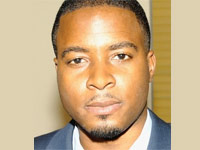 Even though Bahamas Petroleum Company (BPC) has spent the last few months courting local church leaders, the Bahamas Christian Council (BCC) yesterday delivered a scathing assessment of the firm, expressing “grave concerns” about BPC’s intentions and what the government would collect if oil is discovered in Bahamian waters.
Even though Bahamas Petroleum Company (BPC) has spent the last few months courting local church leaders, the Bahamas Christian Council (BCC) yesterday delivered a scathing assessment of the firm, expressing “grave concerns” about BPC’s intentions and what the government would collect if oil is discovered in Bahamian waters.
BPC thinks that around nine billion barrels of oil are likely underneath the ocean floor where it has leases to drill. It has a sliding-scale agreement with the government under which it would pay out anywhere from 12.5 percent to 25 percent depending on how much oil is extracted each day.
However, at a press conference, Bahamas Christian Council Economic Committee Chairman Reverend Patrick Paul called this arrangement “categorically unjust, injurious and unfair to the democracy of our nation”, and added that it would not benefit Bahamians directly.
He also labelled BPC “a venture capitalist exploratory company whose main objective is the massing of vast profits for itself and its distant shareholders”.
The only condition under which the BCC would support BPC drilling for oil would be if an additional 25 percent of the profits derived from oil drilling are paid into a national sovereign trust fund that would be separate from the government’s royalties.
The Christian Council, which has thrown its support behind the Citizen’s Committee to form the National Citizen’s Alliance Coalition (NCAC), said Bahamians would manage the fund under the oversight of the Central Bank of The Bahamas.
The fund would also be required to pay a $100,000 dividend to each household in The Bahamas each year, according to the NCAC.
NCAC spokesperson Wesley Campbell said the group is also concerned about whether BPC has the best interests of Bahamians at heart.
“We have very grave concerns, which we shall deal with in a separate press conference very shortly,” Campbell said.
The government announced last week that it will allow exploratory oil drilling. Following the announcement BPC announced its plans to spud an exploratory well next year.
By Royston Jones, Jr.
Guardian Staff Reporter

